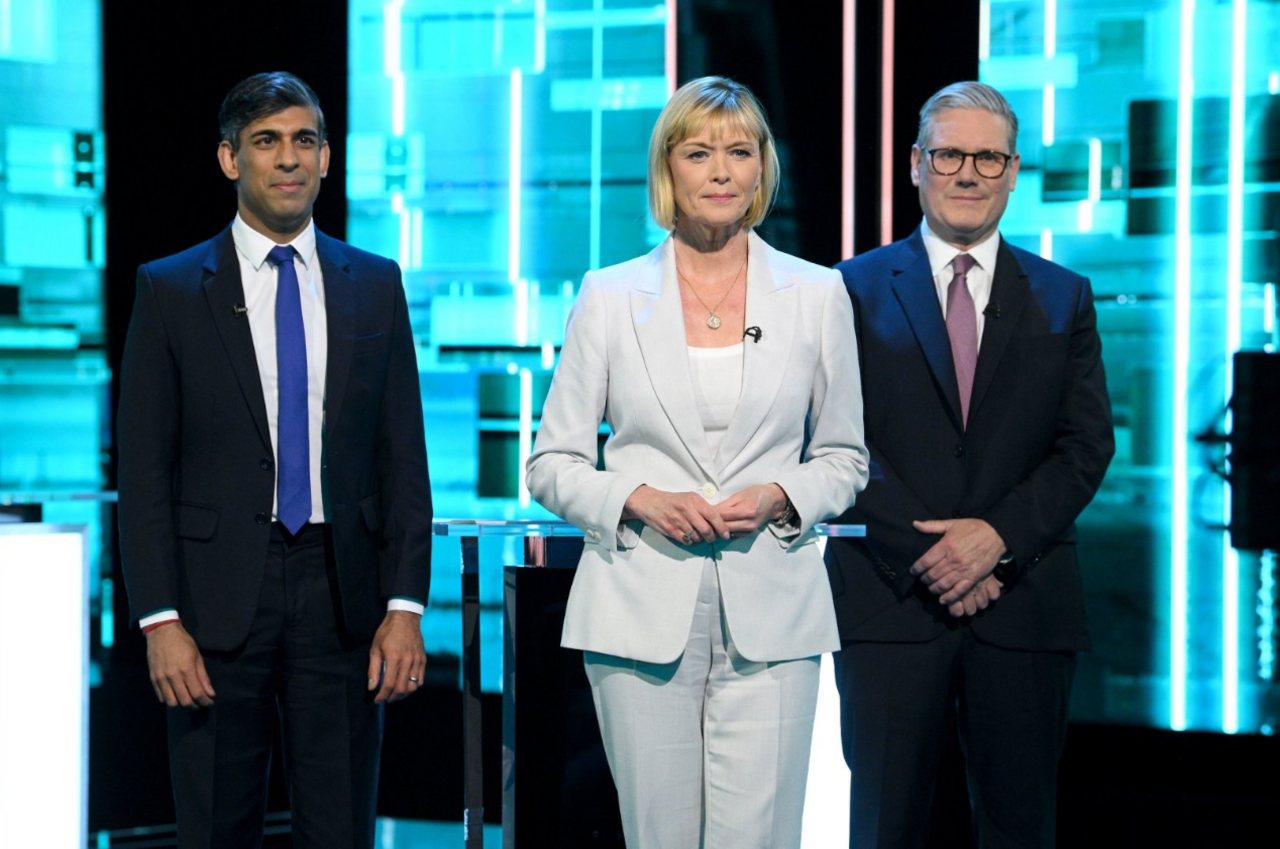Will Sunak’s dubious tax claim stick in voters’ minds?

- Published
The day after the debate night before, there is a row about a dubious Conservative claim that a Labour government would hammer you for around £2,000 more in tax over the next four years.
In last night’s debate on ITV, Rishi Sunak made the claim over and over again.
It took Sir Keir Starmer quite a while to dismiss it as false.
Today, as the debate is unpicked, it is that claim at the centre of the analysis.
And here is the key question: how memorable does that number become, and how credible is it?
BBC Verify have given it a look here - and say it risks misleading people and is questionable.
It reminds me of all those rows about the £350m for the NHS on the side of the Vote Leave bus during the Brexit referendum.
In that instance, that number was factually wrong, but there was a mighty argument about it, which made it incredibly prominent.
So, how much does £2,000 stick in people’s minds, prodding away at any fears that a Labour government might put up your taxes?
And how much do the attempts to dismiss it as “garbage” by Labour undermine the trust and credibility of the Conservatives?
Let’s take a look at that number.
The Conservatives claim, on page 6 of this document, external called Labour’s Tax Rises, that “the impact of £38.5bn in unfunded spending would be equivalent to £2,094 per working household over the next four years".
Rishi Sunak, and the cabinet minister Claire Coutinho this morning, have claimed the number, external was arrived at by impartial civil servants.
Enter the most senior civil servant at the Treasury, Permanent Secretary James Bowler, who says no it wasn’t.
That row aside, over the involvement of the Treasury, there is a question about how the number has been arrived at.
The Tories point to their document I mentioned and claim their numbers are actually underestimates of Labour’s potential costs.
And they are leaning into it - the prime minister has shared a video about it on social media.
Labour has gone into overdrive trying to shred the credibility of the number, with the whiff of overcorrection after Keir Starmer’s failure to take it on as robustly as some opposition figures wish he had last night.
Shadow Cabinet minister Jonathan Ashworth came out and called it “a lie” this morning, and Sir Keir Starmer has done the same this afternoon.
There has been a video, too, from the shadow chancellor Rachel Reeves.
Labour supporters have been emailed by the party asking for donations so they can take on Rishi Sunak who “lied 11 times”.
All of which raises the prominence of the row.
A fleeting observer of politics – in other words the vast majority of people – may only hear about the story in the loosest terms, in other words: Labour and more tax.
And that is its potency.
So how sticky does this claim become, in the minds of voters, and how credible is it regarded? They are the two big questions.
Incidentally, in the interests of transparency, it raises a dilemma for reporters like me.
Do you report the row, and so raise the prominence of a contested figure, or not report it, and not do so?
Both are active choices and there is no simple answer.
My instinct, for what it is worth, is it would be odd for me to walk past the political row of the day, but it is important to reflect it in a rounded way that attempts to unpick the claims on all sides – so you can come to your own view about what is happening.
